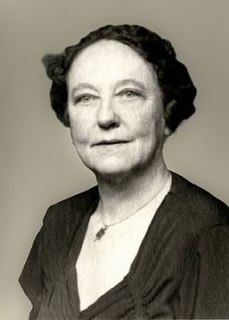Related Research Articles

Edward Sapir was an American Jewish anthropologist-linguist, who is widely considered to be one of the most important figures in the development of the discipline of linguistics in the United States.
Leonard Bloomfield was an American linguist who led the development of structural linguistics in the United States during the 1930s and the 1940s. He is considered to be the father of American distributionalism. His influential textbook Language, published in 1933, presented a comprehensive description of American structural linguistics. He made significant contributions to Indo-European historical linguistics, the description of Austronesian languages, and description of languages of the Algonquian family.

Penutian is a proposed grouping of language families that includes many Native American languages of western North America, predominantly spoken at one time in British Columbia, Washington, Oregon, and California. The existence of a Penutian stock or phylum has been the subject of debate among specialists. Even the unity of some of its component families has been disputed. Some of the problems in the comparative study of languages within the phylum are the result of their early extinction and limited documentation.
Geoffrey Keith Pullum is a British and American linguist specialising in the study of English. He is Professor Emeritus of General Linguistics at the University of Edinburgh.

Li Fang-Kuei was a Chinese linguist known for his studies of the varieties of Chinese, his reconstructions of Old Chinese and Proto-Tai, and his documentation of Dene languages in North America.

The Linguistic Society of America (LSA) is a learned society for the field of linguistics. Founded in New York City in 1924, the LSA works to promote the scientific study of language. The society publishes three scholarly journals: Language, the open access journal Semantics and Pragmatics, and the open access journal Phonological Data & Analysis. Its annual meetings, held every winter, foster discussion amongst its members through the presentation of peer-reviewed research, as well as conducting official business of the society. Since 1928, the LSA has offered training to linguists through courses held at its biennial Linguistic Institutes held in the summer. The LSA and its 3,600 members work to raise awareness of linguistic issues with the public and contribute to policy debates on issues including bilingual education and the preservation of endangered languages.

Plateau Penutian is a family of languages spoken in northern California, reaching through central-western Oregon to northern Washington and central-northern Idaho.
Americanist phonetic notation, also known as the North American Phonetic Alphabet (NAPA), the Americanist Phonetic Alphabet or the American Phonetic Alphabet (APA), is a system of phonetic notation originally developed by European and American anthropologists and language scientists for the phonetic and phonemic transcription of indigenous languages of the Americas and for languages of Europe. It is still commonly used by linguists working on, among others, Slavic, Uralic, Semitic languages and for the languages of the Caucasus and of India; however, Uralists commonly use a variant known as the Uralic Phonetic Alphabet.
Lyle Richard Campbell is an American scholar and linguist known for his studies of indigenous American languages, especially those of Central America, and on historical linguistics in general. Campbell is professor emeritus of linguistics at the University of Hawaiʻi at Mānoa.
George Leonard Trager was an American linguist. He was the president of the Linguistic Society of America in 1960.
The history of linguistics in the United States began to discover a greater understanding of humans and language. By trying to find a greater ‘parent language’ through similarities in different languages, a number of connections were discovered. Many contributors and new ideas helped shape the study of linguistics in the United States into what we know it as today. In the 1920s, linguistics focused on grammatical analysis and grammatical structure, especially of languages indigenous to North America, such as Chippewa, Apache, and more. In addition to scholars who have paved the way for linguistics in the United States, the Linguistic Society of America is a group that has contributed to the research of linguistics in America. The United States has long been known for its diverse collection of linguistic features and dialects that are spread across the country. In recent years, the study of linguistics in the United States has broadened to include nonstandard varieties of English speaking, such as Chicano English and African American English, as well as the question if language perpetuates inequalities.
Structural linguistics, or structuralism, in linguistics, denotes schools or theories in which language is conceived as a self-contained, self-regulating semiotic system whose elements are defined by their relationship to other elements within the system. It is derived from the work of Swiss linguist Ferdinand de Saussure and is part of the overall approach of structuralism. Saussure's Course in General Linguistics, published posthumously in 1916, stressed examining language as a dynamic system of interconnected units. Saussure is also known for introducing several basic dimensions of semiotic analysis that are still important today. Two of these are his key methods of syntagmatic and paradigmatic analysis, which define units syntactically and lexically, respectively, according to their contrast with the other units in the system.
Linguistics is the scientific study of human language. It is called a scientific study because it entails a comprehensive, systematic, objective, and precise analysis of all aspects of language, particularly its nature and structure. Linguistics is concerned with both the cognitive and social aspects of language. It is considered a scientific field as well as an academic discipline; it has been classified as a social science, natural science, cognitive science, or part of the humanities.
In linguistic typology, polysynthetic languages, formerly holophrastic languages, are highly synthetic languages, i.e. languages in which words are composed of many morphemes. They are very highly inflected languages. Polysynthetic languages typically have long "sentence-words" such as the Yupik word tuntussuqatarniksaitengqiggtuq.

Charles Frederick "Carl" Voegelin, often cited as C. F. Voegelin, was an American linguist and anthropologist. He was one of the leading authorities on Indigenous languages of North America, specifically the Algonquian and Uto-Aztecan languages. He published many influential works on Delaware, Shawnee, Hopi and the Tübatulabal languages.

In linguistics, the term formalism is used in a variety of meanings which relate to formal linguistics in different ways. In common usage, it is merely synonymous with a grammatical model or a syntactic model: a method for analyzing sentence structures. Such formalisms include different methodologies of generative grammar which are especially designed to produce grammatically correct strings of words; or the likes of Functional Discourse Grammar which builds on predicate logic.
Victor Golla (1939–2021) was a linguist and a leading expert on the indigenous languages of California and Oregon, especially the Pacific Coast Athabaskan subgroup of the Athabaskan language family and the languages of the region that belong to the Penutian phylum. He was emeritus professor of anthropology at Humboldt State University and lived in Trinidad, California.

Emma Adelaide Hahn was an American linguist and classicist who specialized in Latin grammar and Indo-European linguistics. She served as chair of the Hunter College Classics department for twenty-seven years and was the first woman to serve as president of the Linguistic Society of America.
Betty J. Birner is an American linguist. Her research focuses on pragmatics and discourse analysis, particularly the identification of the types of contexts appropriate for sentences with marked word order.
Language: An Introduction to the Study of Speech is a seminal book by Edward Sapir in which the author offers an introduction to his ideas about language.
References
- ↑ "Leonard Bloomfield". Britannica.
- ↑ "linguistics - Semantics". Britannica.
- ↑ Haas, Mary R. (1976). Chafe, Wallace L (ed.). "Boas, Sapir, and Bloomfield". American Indian Languages and American Linguistics: 59–69. doi:10.1515/9783110867695-007. ISBN 9783110867695.